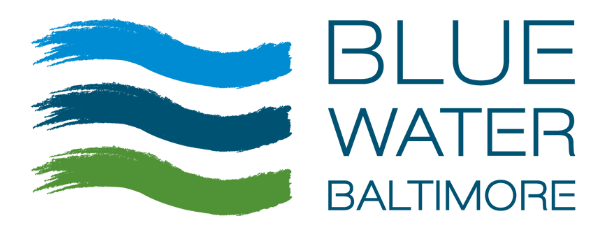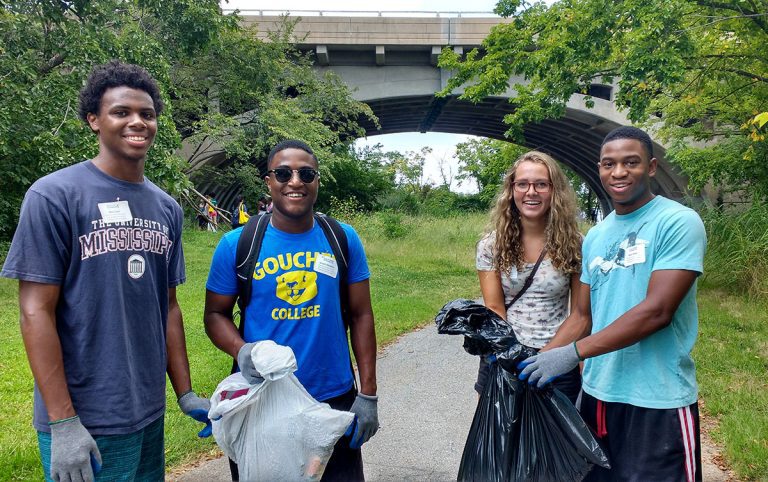Baltimore’s Voice Was Heard: We Want Clean Water
From the Desk of the Executive Director:
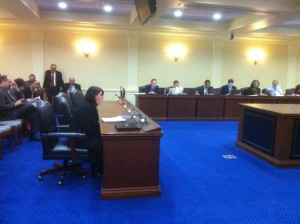
Last Monday, April 9th, was the final day of the Legislative Session in Maryland. After the exciting passage of two top priority bills the week before–increased funding for Waste Water Treatment Plants and limits on where septics systems could be built–it was time to turn attention to important but controversial Stormwater Bill. This bill would mandate that Maryland’s ten highly urbanized jurisdictions (including Baltimore City and County) create a funding source dedicated to controlling and managing polluted stormwater runoff.
In many ways this bill had been the ‘dark horse’ of the Clean Water, Healthy Families coalition’s priorities: we worried it would be cast aside as being too ambitious.
Yet at Blue Water Baltimore we knew that we could afford to wait no longer: local and federal mandates demanded it, and our beleaguered streams and waterways have been choked with pollution and trash for too many years. We also knew there was significant power in numbers and felt that a collective push could to get our counties focused on this source of pollution. We were part of a cohesive and focused coalition and felt that 2012 was the year to make it happen.
As relative newcomer to the legislative advocacy, I found it fascinating to watch the process. As well as nerve-wracking, frustrating, and time consuming! I watched the bill move out of committee late in the afternoon on the last day of the session, and with both optimism and anxiety, we saw the bill go to the Senate floor at 8pm.
Far worse than watching the clock run down at a basketball game, it was quite obvious that we were running out of time. The House had passed the bill earlier, but the two bills would have to ‘concur’: even if it did pass on the Senate side it would have to go back to House, whose focus had shifted to other items.
The floor leader for this bill was Senator Paul Pinsky of Prince George’s County, who was tenacious in fighting off countless amendments, which would have effectively rendered the bill useless. Co-sponsor Senator Jaime Raskin of Montgomery County and Committee Chair Joan Carter Conway also worked hard to fend off the amendments, and continued to push the bill forward. There was a filibuster attempt, procedural attempts to slow the clock, and sheer exhaustion kicking in as legislators worked late into the night to pass the suite of bills.
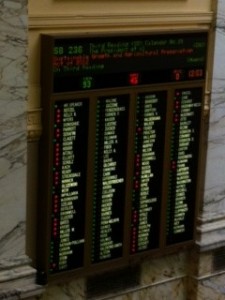
As I sat in the balcony with colleagues anxiously watching the action, there were moments I wondered if all of our efforts were for naught–if all of the phone calls and emails and meetings that members of the Blue Water Baltimore family had done in support of this bill would not have meaningful effect? Perhaps most importantly I was worried what failure would have meant for the Gywnns Falls and the Herring Run; the Inner Harbor. What would happen if Baltimore City had to take the very challenging position of going it alone, without our neighboring jurisdictions also required to collect funds to accelerate stormwater clean up and reduce the pollution that washes downstream?
Amazingly, at about 11:45 the bill came back up and passed the Senate with a vote of 33-14. It was whisked across the Hall, where at two minutes to midnight, the House concurred and a well fought victory was ours!
The passage of this bill and the other two bills is an amazing accomplishment for all of us. Veterans of the process tell me that passage of one or maybe two major environmental bills is something to be proud of.
This is a victory for water quality improvements, most of which will be seen in years to come, not tomorrow. There is much work ahead to ensure that strong local laws, allowing for effective and innovative project design and implementation, get passed quickly and transparently.
Our voices were heard, and we had the expertise and staying power to keep driving the process forward. Our lives are increasingly busy. We are all working at nights, on the weekends, and managing busy households of children, pets and activities. But, as a society, we have to keep showing up and advocating for the change we believe in. Those who are reading this know that we cannot sit on the sidelines as our planet is degraded, and we know that acting locally can make a difference. It wasn’t just environmental activists and scientists pushing for this. It was people in search of jobs, those in the construction industry ready get back to work, and families seeking the dream of fishing, swimming, and boating safely. As citizens, we have a role in advocating for the change we want and working together to make it happen.
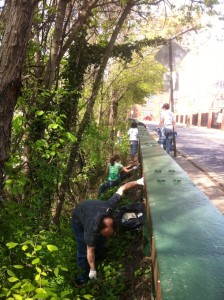
While I am passionate about the environment and all of the amazing animals and plants that are part of the cycle of life, this process has reminded me that I am most passionate about people. I love working with others to move forward and to make change, whether it is on-the-ground restoration work or complicated processes like passing meaningful legislation.
I also believe that it takes all of us. We can’t sit back and expect government to take care of this mess. They will not -and can not – do it all. They especially won’t do it if we don’t demand it. We, as citizens, can do more ourselves, and I am so very proud that every single program at Blue Water Baltimore is doing just that: engaging and mobilizing citizens of all walks of life to make a difference where they live, work, and play.
A final word on people. I was privileged to work with an amazing and talented group of colleagues as part of the Clean Water, Healthy Families coalition. From large multi-state organizations like the Chesapeake Bay Foundation, to other watershed groups like the South River Federation and West and Rhode RIVERKEEPERs, to groups on the Eastern Shore, it was clear that we all brought something unique and valuable to the table. I was incredibly impressed by the collaborative spirit and work ethic of our team.
Blue Water Baltimore is proud to have been instrumental with the leadership of two key committees: the House Environmental Matters Committee, chaired by our outstanding Delegate Maggie McIntosh (District 43), and the Chair of the Senate Education, Health and Environmental Affairs Committee, Senator Joan Carter-Conway (District 43). Both were critical in the success of all three bills. A strong push from Baltimore voters was essential and we delivered. So thank you to all who helped get us over the finish line (and please feel free to contact their offices and thank them) and I hope you will join us again and encourage others to get involved. Onwards!
[Note: more information and context can be found in the number of articles that summarized the session, for example, Tim Wheeler’s article in the Baltimore Sun and in the Policy and Advocacy section of our website.]
